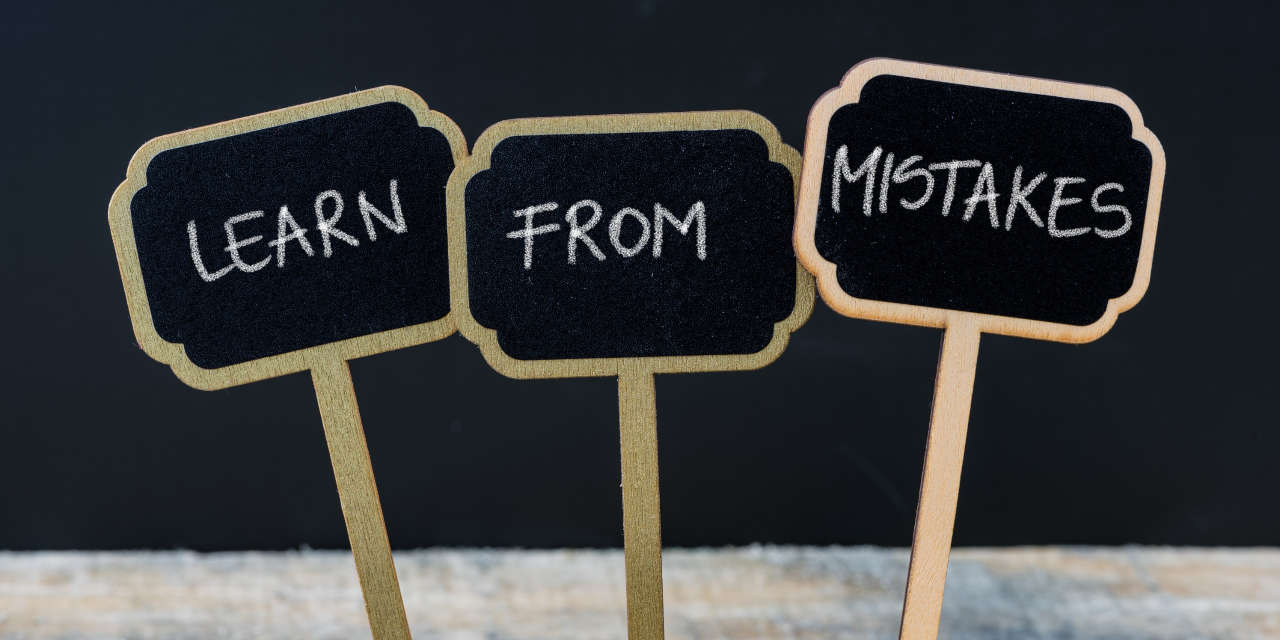By Leigh Ann Hubbard
As a leader, when you make a mistake, it stinks.
After all, everybody knows you’re perfect. You know what you’re doing. You’re the best at it.
Cough.
And then you mess up.
Maybe you mess up publicly or in front of a resident. Maybe it’s a little screw-up or a game-changing blow-up.
Maybe it’s not even a mistake; it’s that something went wrong out of your control but under your watch — like a tech fail during an important event. That happened to Foresight publisher Steve Moran during this year’s Evolve, Foresight’s virtual conference for life enrichment professionals. His electricity went out during it. The head of the entire event had to figure out a way to lead an online conference with no power.
Whatever the case …
When there’s an isolated screw-up: Your team? They’re probably ultimately, somewhere deep down … a little relieved.
I mean, they’re also feeling for you and wanting things to go well. It’s just that, the thing is, they know that they make mistakes and have screw-ups too. When it happens to the boss, the pressure to be perfect alleviates a tad.
When we’re all a little vulnerable, everybody has more room to breathe.
A Blame-Free Culture Is …
At Foresight, we have a blame-free culture. Here’s what it means in practice:
- We’re expected to do our best, and at the same time, it’s expected that things will go wrong sometimes because we are human.
- When things go wrong, if we find ourselves looking to blame someone or saying “I told you so,” we check ourselves because we know that’s not how we work here. Instead:
- We extend grace and empathy.
- If applicable: We consider how we might have contributed to the snafu and what we might do differently next time, or how we might help prevent it in the future.
- We take whatever other lessons we can from it.
- We work to make it right, if needed — for example, if we’ve made a mistake with a partner.
- We move forward.
Here’s what this leads to:
- Openness and admission of mistakes
- Strong teamwork
- A sense of bonding in the difficult times
- A focus on solutions
- Increased risk tolerance — acceptance that not everything will be a winner
- Increased out-of-the-box thinking — no need to play it safe to stay in good standing
- A forward-looking organization that stays ahead of the curve
A Blame-Free Culture Is Not …
One important caveat: A blame-free culture should not mean that no one is ever accountable. It’s not an excuse for sexual harassment, resident neglect, racism, chronic incompetence, etc. — and not an excuse to not have some serious sit-downs or take punitive action when required.
A blame-free culture is more about focusing on solutions in the day-to-day — about people not having to watch their backs all the time and constantly blame each other to direct ire away from themselves.
Blame-Free in Senior Living?
But can we really make this work in a highly regulated, high-stakes industry? Well, health care has tiptoed in. Here’s some of their discussion about blame-free culture, along with the related concepts of “safety culture” and “just culture”:
- “Blame Does Not Keep Patients Safe,” Community Eye Health
- “Culture of Safety,” PSNet (Agency for Healthcare Research and Quality)
- “Integrating Principles of Safety Culture and Just Culture Into Nursing Homes: Lessons From the Pandemic,” Journal of the American Medical Directors Association
Whatever culture you choose, it has to start at the top. Just like blame can be trickle-down, so can freedom from it.





